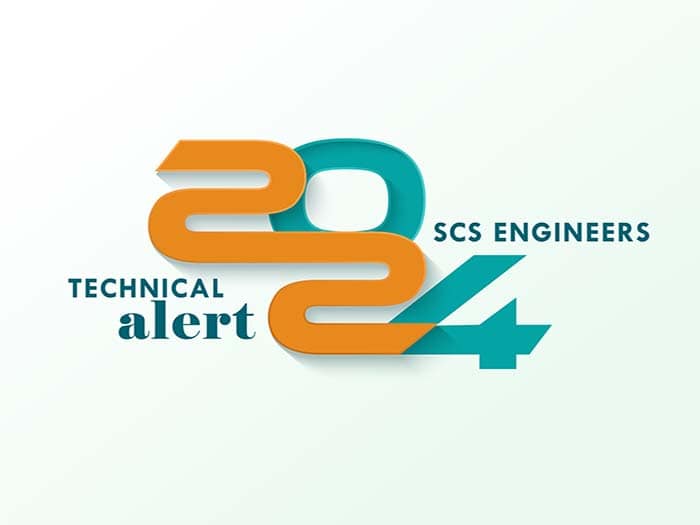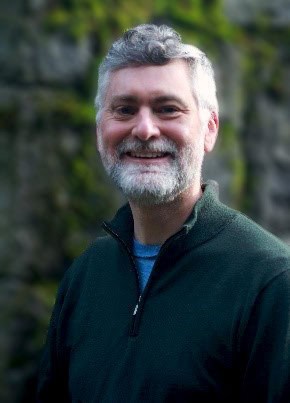

SCS Engineers is excited to participate in the University of Wisconsin-Madison Engineering & STEM Career Fair on September 17, 2024. We’re looking for talented Engineering and STEM majors at all degree levels who want to explore summer internships, co-ops, or full-time opportunities after graduation. The career fair provides an excellent opportunity for students pursuing degrees in Engineering and STEM fields to learn about exciting career paths with SCS Engineers, where innovation meets environmental solutions.
Stop by our booth to meet with our team and discover how you can kick-start your career with a leader in environmental consulting! Click to learn more.
SCS Engineers is excited to participate in the ESSIE Evening with Industry, hosted by the University of Florida October 10th. This biannual event is a premier opportunity for students and alumni specializing in civil, coastal, and environmental engineering to connect with leading industry professionals. Whether you’re seeking an internship or employment, this event is tailored for those in the ESSIE disciplines, offering a focused platform to explore career opportunities and network with experts in the field. Don’t miss your chance to meet our team and learn how you can make an impact with SCS Engineers. Click to learn more!
Join SCS Engineers at the University of Wisconsin-Platteville Engineering Career Fair on September 25, 2024 in . We’re excited to connect with students majoring in Chemistry, Civil Engineering, Construction Management, Environmental Engineering, Environmental Science and Conservation, and Mathematics. Visit our booth to explore exciting career opportunities and learn how you can contribute to impactful projects in the engineering and environmental sectors. Whether you’re looking for internships or full-time positions, our team is eager to discuss how your skills can align with SCS Engineers’ mission to provide sustainable solutions for our clients and communities.
Join SCS Engineers at the FAMU STEM Career Fair on September 24, 2024 at the FAMU-FSU College of Engineering in Tallahassee, FL.! This exciting event features top-tier engineering students from the FAMU-FSU College of Engineering, alongside talented individuals from other science and technical majors at Florida State University, including IT, Computer Science, and more. It’s the perfect opportunity for organizations like SCS Engineers to connect with emerging talent in these dynamic fields. Don’t miss out on the chance to engage with the next generation of innovators and problem-solvers!

A revision to AP-42 regarding Municipal Solid Waste (MSW) Landfills was finalized on August 15, 2024. AP-42 is the Compilation of Air Pollutant Emission Factors guidance developed by the U.S. Environmental Protection Agency (EPA) to evaluate air pollution emissions from various sources. EPA drafted new emission factors for the MSW Landfill portion of AP-42 on January 12, 2024 and offered a 60-day public comment period that ended March 12, 2024.
Highlights of this final action include:
For additional information, please contact SCS Engineers, or visit the EPA Air Emissions Factors and Quantification website.
Join SCS Engineers at SWANA Young Professionals Green Drinks, August 23rd 6-8 pm at San Pedro Square Market, where you can explore an exciting and impactful career path in sustainability and learn more about the circular economy. This is your chance to network with industry experts, enjoy drinks and appetizers, and discover unique career opportunities that make a difference in our communities by reducing waste and combating climate change. Whether you’re just starting out, considering a career transition, or simply looking to connect with others in the field, this event offers valuable insights and connections to help you engage with the circular economy. Hear from speakers representing the Solid Waste Association of North America (SWANA), Northern California Recycling Association (NCRA), Enthalpy Analytical, SCS Engineers, Mainspring Energy, and more. Bring a friend and get ready to explore the diverse career paths this industry has to offer! Register today!
Join SCS Engineers at the 2024 Illinois Manufacturers’ Association Environment & Energy Conference. The event will be held October 22 at the Tinley Park Convention Center in Tinley Park, IL. This event is great for Illinois manufacturers to gain critical insights from state environmental and energy experts. Designed for CEOs, plant managers, safety officers, legal teams, and environmental professionals, this one-day program will delve into compliance, regulations, permitting, sustainability, and future legislative developments. Attendees will hear directly from state officials, regulators, and industry leaders on the most pressing environmental and energy-related issues.
As a proud Lunch Sponsor, SCS Engineers invites you to visit our booth to discuss your environmental compliance challenges and explore solutions tailored to your upcoming needs. Don’t miss this opportunity to connect with our experts on site! Register today.

Anecdotes on stormwater design, management, and regulation by a non-engineer
The purpose of this series is to present case studies and general thoughts on stormwater. When possible, I want to share interesting examples that may offer opportunities to challenge existing paradigms and spark discussion. As an ecologist/toxicologist, I have very much enjoyed this now 20+ year foray into what is often an engineer’s wheelhouse. My hope is that I can offer a different angle on stormwater, as we seem to be increasingly affected by high storm intensities and more stringent regulations across the country.
A Little Historical Context…
Stormwater has, and continues to be, largely the purview of engineers. Engineered designs for managing stormwater have existed for thousands of years and can be seen in both the “ancient” old (Mesopotamia) and new (Mayan and Aztec) world. Designs were empirical and began out of necessity for safety and to protect land uses, such as residences and agriculture. In modern times, empirical observations have been converted into modeling tools to simplify the process greatly.
These days, stormwater issues are getting more complex. Heavy, widespread water pollution generally began in the mid-1800s with the Industrial Revolution but became a more obvious problem following World War II. The first major U.S. water quality law was enacted in 1948 and became much more prominent in 1972 as the Clean Water Act (CWA) we know today. The CWA addresses stormwater because it clearly has the potential to carry pollutants, particularly when it originates from large industrial sites.
More recently, we have become much more aware of the key role of long-term planning when it comes to stormwater. Trying to engineer your way out of a stormwater problem will likely be much more expensive than simply planning well and maintaining a properly designed system.
Although stormwater engineering was once simply about preventing stormwater from being destructive, it has now become at least as much about maintaining water quality. As pollutants become more prevalent in more confined and constrained systems, effects on human health and the environment are likely to be more pronounced, especially when existing ecosystem services are inadequate to mitigate impacts. Moreover, ecosystems expected to treat stormwater, such as wetlands and streams, are now likely protected themselves, and opportunities for “dilution being the solution to pollution,” while still a valid concept, are becoming rarer. Our ecosystems simply do not have the capacity to handle everything we are throwing at them.
That’s the context for this series: How we control and treat stormwater in the context of interesting observations and experiences. The intent is to share stories and thoughts to create conversation and reflection on stormwater played against the regulatory background.
Authors Note

I am an ecologist with a postdoctoral background in environmental toxicology and have been professionally engaged as a consultant in water quality issues since 1989. Recently I have become engaged in a number of legal discussions and disputes regarding water quality; in particular, industrial stormwater, and I continue to be interested by issues that come up during the course of a general stormwater practice.
I am a pragmatist: I have practiced long enough that I have left idealism behind. Idealistic approaches are valid as a theoretical baseline, but anything beyond that must have scientific or well-documented empirical support. Otherwise, idealism is just sort of adorable, if not misguided, and can lead to real problems.
As an ecologist, I respect our ecosystems as much as anyone. Our goal is to protect human health and the environment. Some parts of this series may appear to some that I’m “siding” with industry or other client concerns, but my intent is always to balance idealism against practical and scientific reality.
In summary: “The road to hell is often paved with good intentions.”
Let’s walk the road together and see what we can figure out.